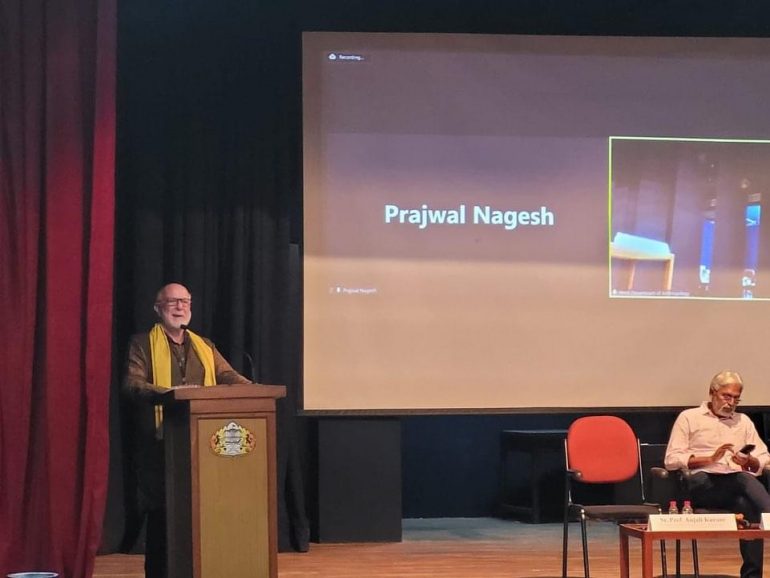Advertisement
Why and How Teaching in the Liberal Arts is Important
HOW? How is teaching in the liberal arts done?
Cultivating Critical Thinking Skills
As a philosophy professor, I approach teaching introductory courses as an opportunity to equip students with a valuable skill set. Unlike other disciplines like history or chemistry, philosophy requires less memorization and more critical thinking. My primary focus is on teaching students to think critically, a skill that encompasses reflection, doubt, analysis, and synthesis.
Reflection is the foundation of critical thinking, involving conscious effort to recognize and challenge preconceived beliefs and values. I encourage students to question what they consider “obviously true” and to refrain from automatic judgment. This process can be uncomfortable, but it’s essential for growth.
Common Mistakes to Avoid when Searching for Job
Advertisement
Doubt arises when students realize that their beliefs and assumptions may not be as clear-cut as they thought. This discomfort leads to analysis, where we scrutinize beliefs and values to determine their strengths and weaknesses. It’s like disassembling a clock to understand its inner workings or testing beliefs in a crucible to see if they emerge unscathed.
Synthesis is the final step, where students reassemble their beliefs into a consistent world-view that they can defend rationally. This process is both analytic and synthetic, requiring students to think critically and creatively. Through rigorous analysis, students often emerge with a new perspective and, sometimes, as changed individuals.
My teaching approach emphasizes intensive reading, writing, and involvement. I create a sense of community in my classes, encouraging students to engage with each other and the material. An example of this is a group assignment where students read different novels (e.g., 1984, Fahrenheit 451) and write two reports: a basic book report and a critical analysis. They must also answer questions like “What do these five books have in common?” This encourages collaboration and critical thinking.
The Invaluable Power of a Praying Wife
By teaching critical thinking skills, I empower students to navigate complex ideas, challenge their assumptions, and develop a deeper understanding of the world. In the liberal arts, we cultivate more than just knowledge – we foster a community of thinkers and learners.
Now WHY? Why is it important?
The Value of Philosophical Skills in the Liberal Arts”
But why teach these philosophical skills? What is their value? Immanuel Kant makes the following pertinent observation:
Advertisement
Enlightenment is man’s emergence from his self-imposed immaturity. Immaturity is the inability to use one’s own reason without guidance from another. This immaturity is self-imposed when its cause lies not in lack of understanding, but in lack of resolve and courage to use it without guidance from another. Sapere aude! “Dare to think for yourself!” – that is the motto of enlightenment [Kant, What is Enlightenment?].
Kant is speaking of that historical epoch known as “the Enlightenment,” and of “enlightenment” more generally, but it seems a short step from enlightenment to philosophy. Kant is in effect epitomizing philosophy’s goal as a kind of cognitive growth, an attempt to transcend the culpable immaturity implicit in being unable or unwilling to think for oneself.
Opportunities and the Power of Readiness
Philosophy is a member of a wider group of disciplines known as the Liberal Arts. The term “liberal” comes from the Latin root libertas, meaning “freedom,” which in turn seems to be etymologically related to “book” (liber). This linguistic connection between liber-ty and reading material suggests some sort of relation between education and the independence expected of adults in a free society.
Assuming an “art” to be a skill acquired through education, the “liberal arts” would be something like the “skills of freedom acquired through education.” An ancient quotation – variously attributed to Galen, Cicero and Pythagoras – appears to confirm this conception when it describes the liberal arts as artes quae libero sunt dignae, “arts worthy of free people,” or perhaps, “arts of people worth freedom.” Freedom is not an empty abstraction, haunting the marbled halls of political institutions or courts of law; freedom is an internal state, a state of mind, which begins within each individual.
Where individual minds are not free, political freedom is impossible; where political freedom exists, it can be destroyed only from within the individual minds of the populace. We may conclude that, like philosophy, the liberal arts generally are concerned to teach a cognitive skill-set the primary purpose of which is to acquire and maintain intellectual autonomy.
Not every student of philosophy will become a philosopher, but every student is expected to master enough of these intellectual skills to defend their own intellectual freedom. Intellectual autonomy is the bedrock of all real freedom. In order for an individual to act freely, that individual must act in accordance with beliefs and values that are her own. As long as her beliefs and values remain unexamined, undoubted, and unanalyzed, then for all intents and purposes she doesn’t really know why she does what she does. She thinks she’s doing the right thing, but why is it right? For whom is it right?
Actions arising from unexamined, second-hand, inherited beliefs and values can leave us vulnerable to cynical manipulation by people who may not have our best interests at heart. When an individual takes possession of her beliefs and values by understanding them thoroughly, she becomes autonomous. Her beliefs and values are for the first time truly her own; her actions are for the first time truly free.
Acquiring and maintaining the skills of intellectual freedom, that is the job of philosophy and the liberal arts.
James J. Pearce, Ph.D. Click to read more works on philosophy and beliefs.
Advertisement







